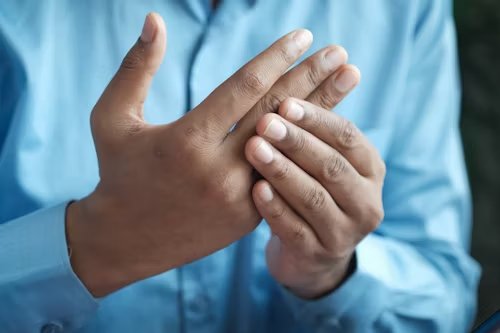Does Cracking Your Knuckles Cause Arthritis?
Hey there! You’ve probably heard it before: someone cracking their knuckles, followed by a well-meaning friend or family member saying, “Stop that, you’ll get arthritis!” It’s one of those old wives’ tales that’s been around forever, but is there any truth to it? I used to wonder the same thing every time I absentmindedly popped my fingers during a boring meeting. So, let’s dive into the science, debunk some myths, and figure out whether cracking your knuckles is harmless or a one-way ticket to achy joints. Spoiler alert: the answer might surprise you!
What’s That Cracking Sound Anyway?
Before we get to the arthritis question, let’s talk about what’s actually happening when you crack your knuckles. That satisfying pop isn’t your bones grinding together or anything sinister like that. It’s all about gas bubbles collapsing in the synovial fluid inside your joints.
The Science Behind the Pop
Your joints, like your knuckles, are surrounded by a capsule filled with synovial fluid, which acts like a lubricant to keep things moving smoothly. When you pull or bend your fingers to crack them, you’re stretching that capsule, lowering the pressure inside. This causes tiny gas bubbles in the fluid to collapse, creating that distinctive sound. Cool, right? It’s like a mini science experiment happening in your hands. Knowing this makes it easier to understand why the arthritis myth might not hold up, but let’s keep digging.
The Arthritis Myth: Where Did It Come From?
So why do people think cracking your knuckles causes arthritis? Honestly, it’s probably because the sound can seem kind of alarming, like something’s breaking or wearing down. Plus, arthritis is a common condition that affects joints, so it’s easy to connect the two in people’s minds. I remember my grandma wincing every time I cracked my knuckles as a kid, convinced I was dooming myself to painful hands in old age. But is there any evidence to back this up?
A Look at the History
This myth likely started because osteoarthritis, the most common form of arthritis, involves joint wear and tear, and knuckle-cracking sounds like it could contribute to that. It’s a classic case of correlation being mistaken for causation. People hear the noise, see older folks with joint pain, and assume the two are linked. But as we’ll see, science tells a different story.
What Does the Research Say?
Let’s get to the good stuff: what does science actually say about knuckle-cracking and arthritis? Lucky for us, researchers have looked into this, so we don’t have to rely on hearsay.
Studies That Clear the Air
One of the most well-known studies on this topic was done in the 1990s by a doctor named Donald Unger. In a now-famous experiment, he cracked the knuckles on one hand every day for 60 years but left the other hand alone. The result? No arthritis in either hand! While this was just one person’s experience, larger studies have backed it up. A 2011 study in the Journal of the American Board of Family Medicine looked at hundreds of people and found no link between habitual knuckle-cracking and osteoarthritis in the hands. Another study from 2017 confirmed the same thing: cracking your knuckles doesn’t increase your risk of arthritis. So, the data is pretty clear—pop away without fear!
Could Cracking Your Knuckles Cause Other Problems?
Okay, so knuckle-cracking doesn’t cause arthritis, but could it lead to other issues? This is a fair question, especially if you’re someone who cracks their knuckles all the time (guilty as charged!).
Potential Downsides
While cracking your knuckles doesn’t damage your joints, some research suggests that habitual knuckle-crackers might experience reduced grip strength over time. A 1990 study found a slight correlation, but it’s not definitive, and more research is needed. For most people, though, the habit is harmless. The only real downside I’ve noticed personally is the occasional annoyed glance from someone nearby who finds the sound grating. If you’re cracking excessively and notice discomfort, it might be worth checking with a doctor to rule out underlying joint issues, but that’s rare.
Why Do We Crack Our Knuckles Anyway?
Ever wonder why cracking your knuckles feels so good? There’s something oddly satisfying about that pop, isn’t there? For me, it’s almost a stress-reliever during a long day.
The Psychology of the Pop
Cracking your knuckles can be a habit, a nervous tic, or even a way to release tension. Some folks do it absentmindedly, while others enjoy the sensation of loosening up their joints. There’s also a theory that the sound triggers a small dopamine release in the brain, which might explain why it feels rewarding. Whatever the reason, it’s a common habit—studies estimate about 25-54% of people do it regularly.
Tips for Healthy Joints (Cracking or Not)
Even though knuckle-cracking won’t give you arthritis, it’s still smart to take care of your joints. Here are a few easy ways to keep your hands happy and healthy.
Stay Active and Stretch
Regular movement keeps your joints lubricated and strong. Try simple hand stretches or exercises like squeezing a stress ball to maintain flexibility and strength. I like to do a quick wrist roll and finger stretch during my coffee breaks—it feels great!
Maintain a Healthy Diet
Foods rich in omega-3s, like fish or walnuts, can help reduce inflammation in your body, which is good for your joints. Staying hydrated also keeps that synovial fluid doing its job.
Listen to Your Body
If cracking your knuckles ever causes pain or swelling, stop and check with a healthcare professional. While it’s usually harmless, persistent discomfort could signal something else going on, like tendon issues or early arthritis unrelated to the cracking.
Wrapping It Up: Crack On (Or Don’t)!

So, does cracking your knuckles cause arthritis? Nope, the science says you’re in the clear! That popping sound is just gas bubbles collapsing, not a sign of joint damage. While the habit might annoy your coworkers or family, it’s not going to lead to arthritis or other major joint problems. If you love the satisfying pop, keep on cracking—maybe just not during a quiet meeting. And if you’re worried about your joints, focus on staying active, eating well, and listening to your body. Here’s to happy hands and myth-free living!

